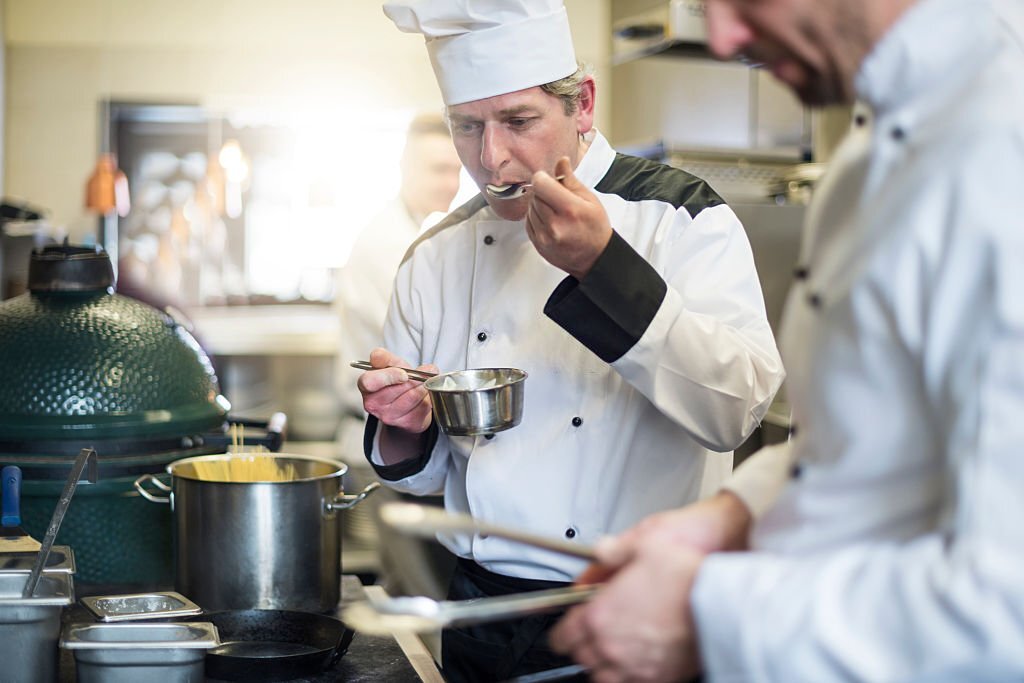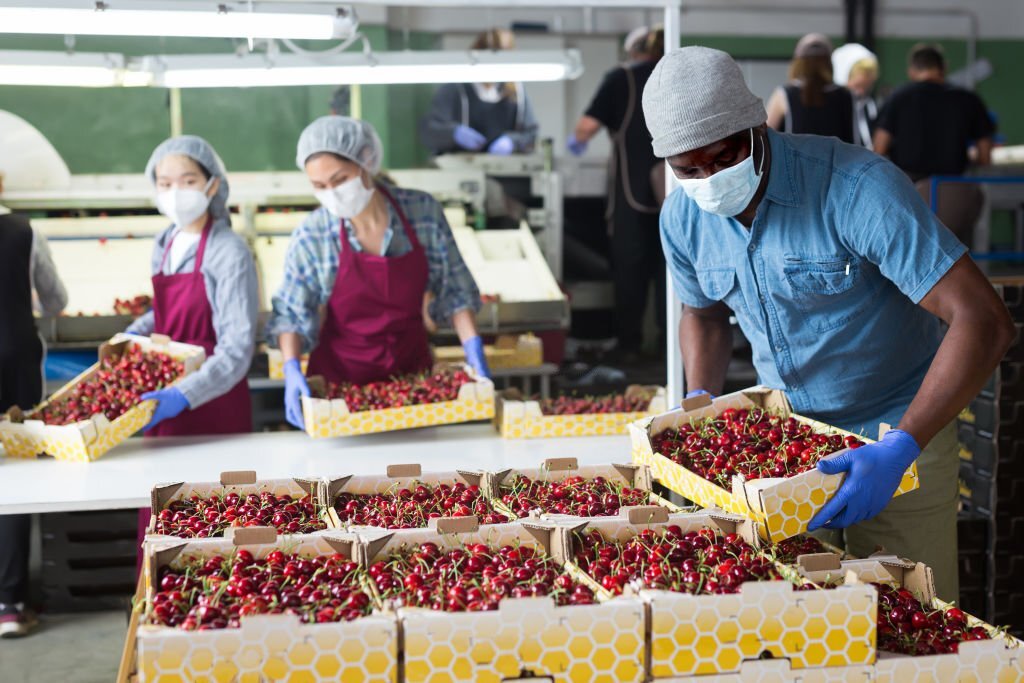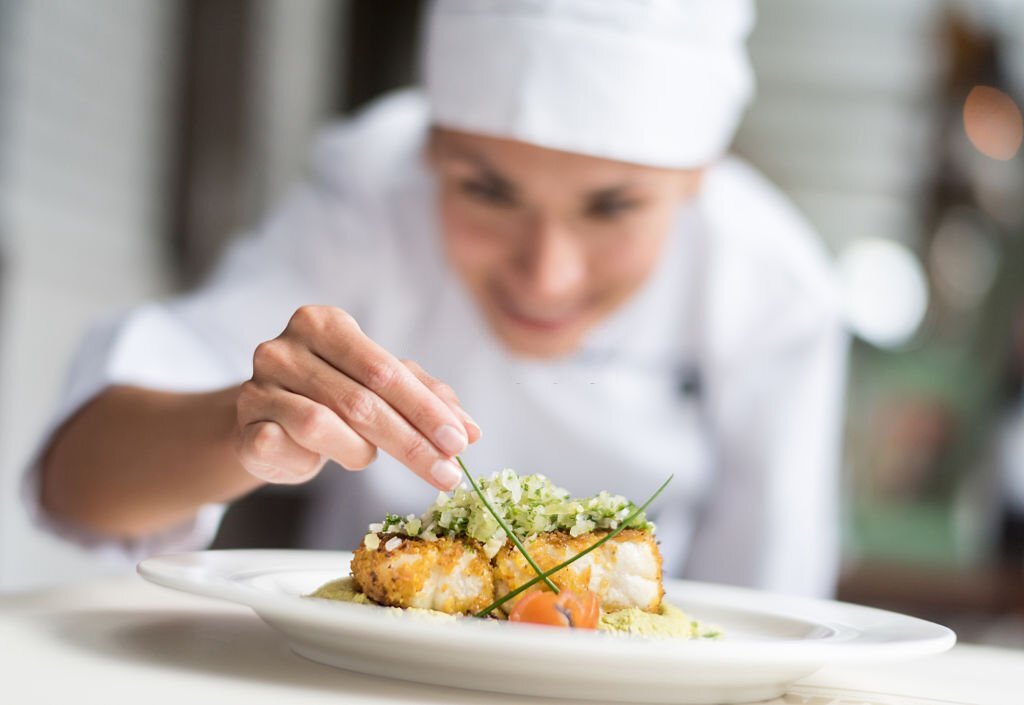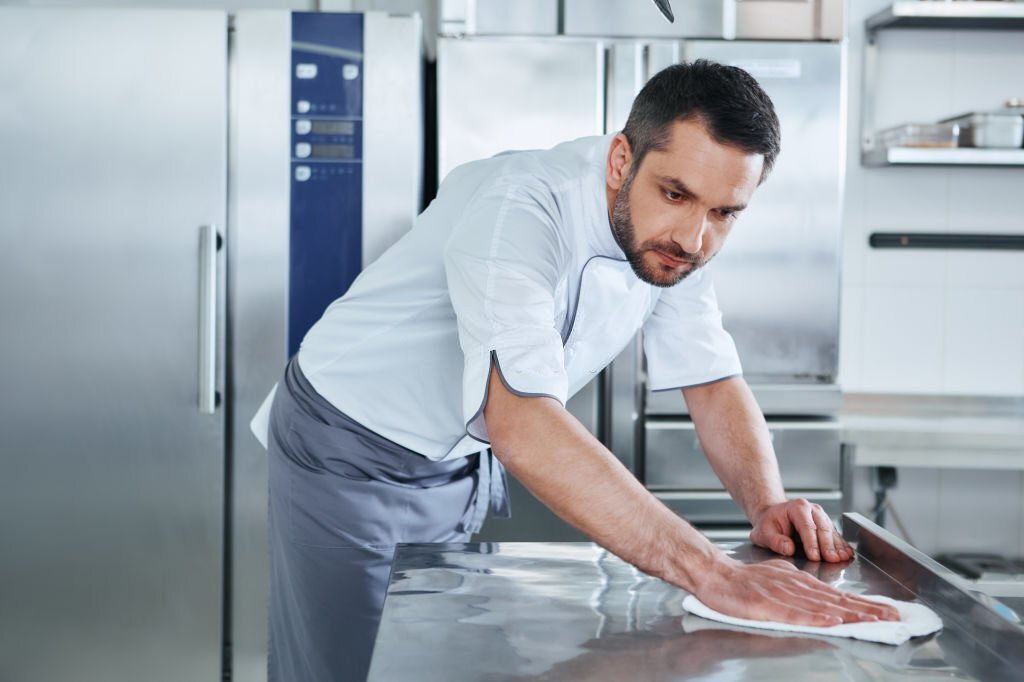The food industry is governed by a lot of rules and routines.
You must be aware of these laws and moral standards if you now work in the food industry or plan to do so in the future.
These regulations are designed to control the entire sector and guarantee that the food produced is secure enough for people to consume.
A food handler is a crucial component of the restaurant and food industry.
However, while many are aware of their significance, few are familiar with their responsibilities.
This brings us to our main question: “Can a food handler taste food to adjust seasoning?“
To start with , Who are food handlers?
Food handler
To know what a food handler can and cannot do, we must understand and be conscious of what that person is.
According to Food Standards Code standard 3.2.2 Food safety practices and general criteria, a food handler is a person who works in a food business and either handles food or touches objects that are likely to come into contact with food, such as cutlery, plates, and bowls.
This demonstrates that the term “food handler” does not specifically apply to one individual or job but rather to anybody who deals with food while working in the food sector.
Accordingly, “cooks, food servers/waiters, packers, bartenders, etc.” are all regarded as food handlers.
The process of making food, which includes manufacturing, producing, gathering, extracting, processing, treating, distributing, serving, displaying, storing, packing, cooking, thawing, or preserving food, can entail a food handler.
Food handlers play a delicate duty that necessitates extreme health precaution.
This is due to the fact that food handlers are in control of food intended for the general population; contamination from one handler could spread to all customers and cause a pandemic.
Can a food handler taste food?
Yes, a Food Handler Can Taste Food
It may be necessary for a food handler to taste a sample of the product to confirm that it satisfies specific requirements for quality.
For instance, a chef can be asked to taste a dish that has just been made for customers before it is served on the restaurant’s floor.
Before using new ingredients or spices in dishes, the cook is expected to taste them first.
The rule also stipulates that if an employee cuts themselves while preparing food, they must fully wash their hands before handling food again in the workplace or risk facing disciplinary action from their employer.
Does a chef or cook have the ability to taste all food?
No, however a cook or chef may taste the food while it is being prepared and adjust the seasoning. Some foods should wait until they are fully cooked before being tasted.
These items, which include the bulk of meat, dairy, poultry, and fish, are categorized as high-risk foods and should only be consumed when fully cooked.
Even though you might not be able to taste them, you can determine whether they are done by taking their temperature using a food thermometer.
Can A Food Handler Take a Bite Out of Your Food?
Food handler training requirements are governed by OSHA standards, which are administered by the U.S. Department of Labor.
All establishments that handle food, such as restaurants and grocery stores, are subject to these requirements.
Every employee must receive training from their employers on how to safely handle any potentially dangerous foods they may come into touch with while doing their tasks, according to OSHA.
Employees must be aware of the warning signs that they may have consumed contaminated food in addition to knowing how to handle potentially harmful items securely.
Employees should receive training on these signs so they can respond appropriately.
if they suspect a customer has fallen ill after consuming food from their restaurant or grocery store, such as by asking the customer if they need medical assistance or calling 911 if necessary.
A food handler personal hygiene
Personal hygiene is a crucial aspect that anyone handling food must consider. The degree of personal hygiene a person maintains determines their capacity to manage meals.
The following are the standards for personal hygiene for food handlers.
- A food handler must wash their hands before starting work and before handling food, cutlery, plates, or any other kitchen tools. Before using gloves, they must also wash their hands.
- A food handler must, hair, earring, or any jewelry. They are not allowed to handle food or other kitchen items after handling money.
- After using the restroom, smoking, coughing, handling mucus, sneezing, cleaning, or contacting any part of the body, a food handler is required to wash their hands with soap and warm running water.Additionally, use paper towels or a hand dryer to dry your hands.
- Sneezing, coughing, or blowing over unprotected food or a surface that is likely to come into touch with food is prohibited.
- Long hair must be restrained and tied back for food handlers Make sure the following items are securely fastened as well: hairpins, clothing buttons, jewelry, bandages, and hair clips.
- A food handler must notify a supervisor of any infection or illness, such as a cold or other conditions that could cause discharges from the nose, eyes, ears, or other parts of the body, in order to keep the food from becoming unsafe for eating. A food handler is required to alert their supervisor if they become unwell with any food-borne illness.
- Food handlers are obligated to alert their supervisor if they have contaminated the food in any way before it is given to the general public or packed for consumption.
Conclusion
A food handler may do a range of jobs in the food sector, under the food standard code.
However, there is one characteristic that ties all food handlers together—the need to take extra care and precaution when it comes to hygiene.
Yes, a person who handles food can taste it to change the seasoning.
However, a food handler’s position within a restaurant or food company has a significant impact on whether they are able to taste food to change the seasoning.




